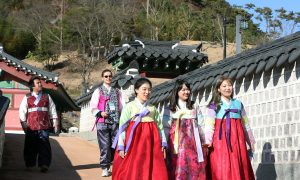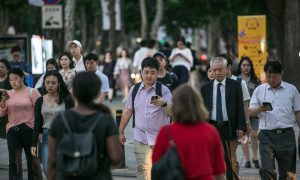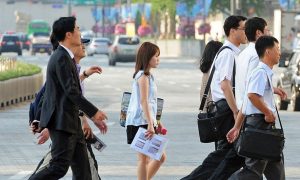With Korea becoming one of the global centers of education and technology, more and more families are choosing to bring their children to Korea for education. Whether it is to provide better learning resources or to enjoy a higher quality education system, theImmigration to Koreaof families are faced with a wealth of educational opportunities. However, how to maximize these opportunities and get the best educational resources for their children in Korea is a challenge that manyimmigrantstopics of interest to families.
This article will discuss in detail the Korean education system and the advantages of studying in Korea for your children, helping prospective immigrant families understand the characteristics and potential of Korean education.
I. Overview of the Korean education system
Korea's education system is one of the most advanced in the world, and students have an international reputation for academic achievement and innovation. The structure of education in Korea is usually divided into the following stages:
- Kindergarten (Korean Kindergarten): It is usually a non-compulsory stage of education for children between the ages of 3 and 5, but most families enroll their children in kindergarten in order to prepare them for elementary school.
- Elementary School: Compulsory schooling, which begins at age 6 and lasts for six years. Primary education focuses on basic subjects (e.g., language, math, science, etc.).
- Middle School: It lasts for three years, usually from the age of 12, and students' academic requirements gradually increase and the school curriculum becomes more structured.
- High School: It lasts for three years and prepares students for university entrance. The high school curriculum is more specialized and students choose courses based on their interests and career paths.
- University: Korea has many world-renowned universities that are extremely competitive, especially in the disciplines of science and technology, engineering, and medicine.
In Korea, the high quality of education is concentrated in the rigor of its curriculum, the hard work of its students, and the extreme importance it places on college entrance exams.
II. Advantages of Korean Education
1. Quality basic education
Korea's basic education system is known for its rigor, comprehensiveness and efficiency. In particular, Korean primary and secondary education emphasizes the solid accumulation of knowledge and the development of practical skills. The curriculum includes a wide range of subjects such as mathematics, science, literature, history and foreign languages, and the content of education has a global perspective, often incorporating elements of modern technology, globalization and social responsibility.
For many immigrant families, the high quality of education in Korea is one of the reasons theyImmigration to KoreaOne of the most important motivations for Korean education not only requires students to have deep subject knowledge, but also emphasizes the development of independent thinking and a sense of creativity. Students' academic excellence also lays a solid foundation for future career development.
2. Strong higher education system
Higher education in Korea has a good reputation worldwide, especially in the fields of science, technology and engineering specialties. Two of Korea's top universities, Seoul National University (SNU) and KAIST (Korea Advanced Institute of Science and Technology), are ranked among the top universities in the world. In addition, POSTECH (Pohang University of Science and Technology) and Koryo University are among the best in the Korean education system. Korean university education emphasizes not only the transfer of basic theoretical knowledge, but also hands-on practice and academic research.

For immigrant families, after their children receive basic education in Korea, they can successfully enter world-class universities and enjoy quality educational resources, further enhancing their competitiveness for future employment.
3. International educational environment
Korea's education system is gradually becoming more internationalized. Many Korean universities offer international programs taught in full English, providing a broad learning platform for international students. Especially in major cities such as Seoul and Busan, children of foreigners can choose from international schools that not only adopt an international curriculum, but also focus on cross-cultural communication and the development of a global perspective.
For families who plan to raise their children in an international environment, the Korean education system offers a wealth of options. Many schools also have partnerships with other top universities around the world, making it easy for students to apply to universities around the globe after graduation.
4. Focus on STEM education
Korea's education system pays special attention to the development of students' scientific, technological and innovative skills. STEM (Science, Technology, Engineering and Math) education is very popular in Korea, and the government encourages schools and companies to work together to provide students with innovative experiments and research projects. Many schools have partnered with companies to offer robotics courses, artificial intelligence courses, etc., to help students acquire the skills they will need in the future workplace.
As technology continues to evolve, Korea's education system is also changing, focusing more and more on fostering creativity and problem-solving skills. During their studies in Korea, children can be exposed to advanced science and technology education, which will stimulate their creativity and interest and enhance their future employment prospects.

Three,Immigration to KoreaChallenges and adaptation in education
Despite the many advantages of a Korean education, there are some challenges for foreign immigrant families to deal with.
1. speech impediment
Most schools in Korea teach in Korean, and although some schools offer English classes, the language can be a major obstacle for children who do not speak Korean. In order to integrate smoothly into school life, children need to master the Korean language, which involves not only communicating in daily life, but also taking academic courses.
Some foreign students may fall behind in their academic performance because of the language barrier. Therefore, immigrant families need to prepare for the language in advance by helping their children learn Korean in advance or choosing a language program suitable for foreign students.
2. Adapting to a stressful academic environment
Education in Korea is very competitive, especially at the high school level. Korean students face the pressure of rigorous college entrance exams, and the high value placed on education by society as a whole makes the academic burden heavier on children. For foreign immigrant families, it may be necessary to help their children adjust their mindsets, learn to cope with academic pressure, and avoid excessive anxiety.
In Korea, a child's academic performance often affects their future college acceptance, so many parents arrange extracurricular tutoring and remedial classes for their children to help them improve their grades. This atmosphere of intense academic competition may take some getting used to for both children and parents.
3. cultural difference
Korea's educational culture is different from other countries in that it focuses on collectivism, respect for teachers, and discipline. For some families from Western or other cultural backgrounds, it may be necessary to help their children adapt to the Korean educational culture and understand its unique approach.
IV. Conclusion
Overall.Korea ImmigrationAfterward, children will enjoy world-class educational resources, both at the basic education level and in higher education. Korea's education system focuses on academic achievement and creativity, providing children with the opportunity for holistic development. Although language barriers and academic pressures are challenges that cannot be ignored, with proper preparation and support, children from immigrant families are well positioned to succeed in the Korean education system.
Korea is undoubtedly an ideal choice for immigrant families who wish to provide their children with a quality education. By learning about and adapting to the Korean education system ahead of time, children will be able to thrive in an environment full of opportunities and meet the challenges of the future.






